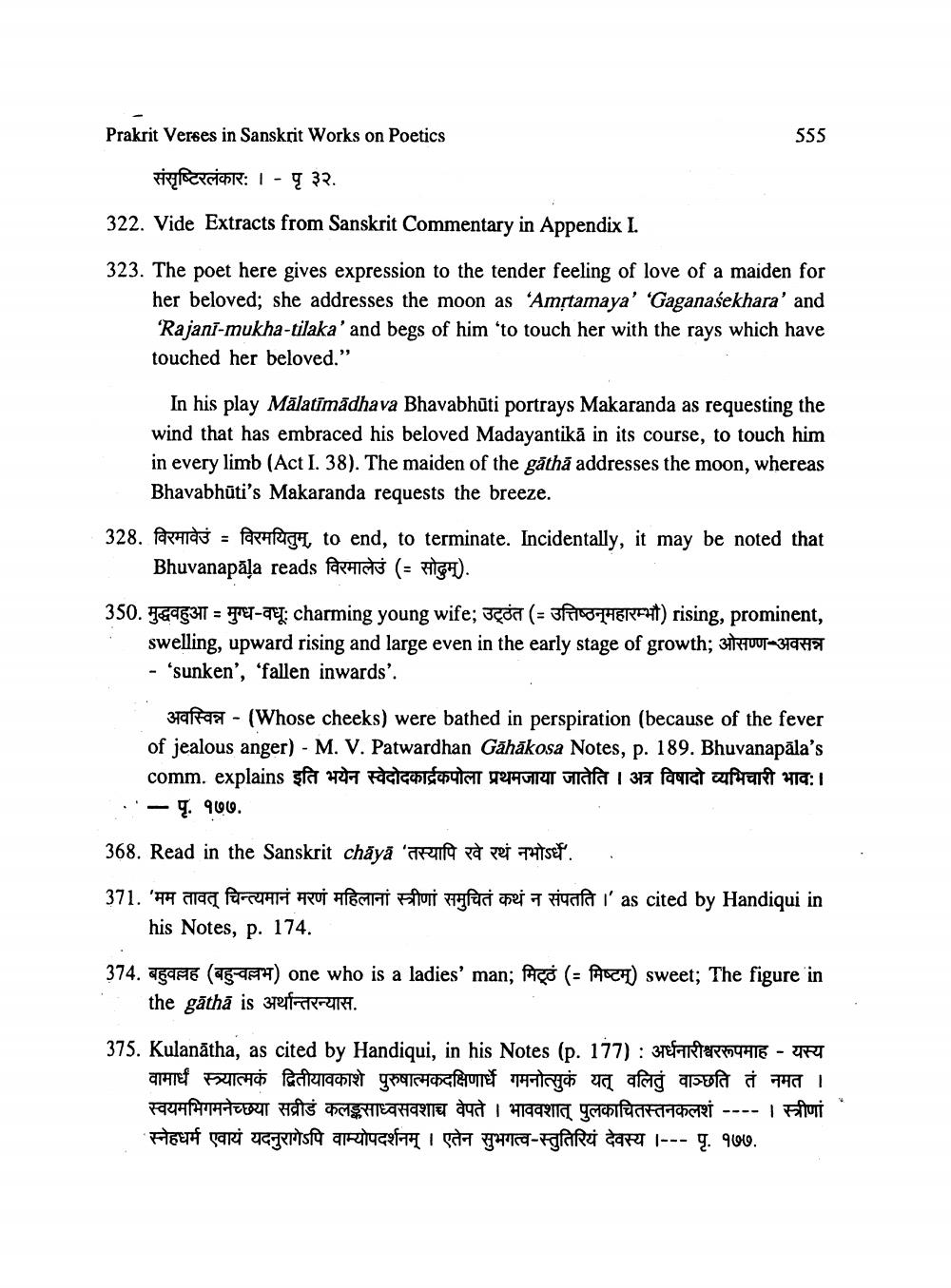________________
Prakrit Verses in Sanskrit Works on Poetics
555
संसृष्टिरलंकारः । - पृ ३२.
322. Vide Extracts from Sanskrit Commentary in Appendix I.
323. The poet here gives expression to the tender feeling of love of a maiden for
her beloved; she addresses the moon as 'Amrtamaya' 'Gaganasekhara' and 'Rajani-mukha-tilaka and begs of him to touch her with the rays which have touched her beloved."
In his play Mälatimădhava Bhavabhūti portrays Makaranda as requesting the wind that has embraced his beloved Madayantikā in its course, to touch him in every limb (Act I. 38). The maiden of the gāthā addresses the moon, whereas Bhavabhuti's Makaranda requests the breeze.
328. विरमावेउं = विरमयितुम, to end, to terminate. Incidentally, it may be noted that
Bhuvanapala reads विरमालेउं (= सोढुम्).
350. मुद्धवहुआ = मुग्ध-वधू: charming young wife; उठेंत (= उत्तिष्ठन्महारम्भौ) rising, prominent,
swelling, upward rising and large even in the early stage of growth; ओसण्ण-अवसन्न - 'sunken', 'fallen inwards'.
3taffan - (Whose cheeks) were bathed in perspiration (because of the fever of jealous anger) - M. V. Patwardhan Gāhākosa Notes, p. 189. Bhuvanapāla's comm. explains इति भयेन स्वेदोदकाईकपोला प्रथमजाया जातेति । अत्र विषादो व्यभिचारी भावः। -पृ. १७७.
•
368. Read in the Sanskrit chāyā 'तस्यापि वे रथं नभोऽर्धे.
.
371. 'मम तावत् चिन्त्यमानं मरणं महिलानां स्त्रीणां समुचितं कथं न संपतति ।' as cited by Handiqui in
_his Notes, p. 174.
374. बहुवल्लह (बहुवल्लभ) one who is a ladies' man; मिळं (= मिष्टम्) sweet; The figure in
the gatha is अर्थान्तरन्यास.
375. Kulanatha, as cited by Handiqui, in his Notes (p. 177) : अर्धनारीश्वररूपमाह - यस्य
वामार्धं स्त्र्यात्मकं द्वितीयावकाशे पुरुषात्मकदक्षिणार्धे गमनोत्सुकं यत् वलितुं वाञ्छति तं नमत । स्वयमभिगमनेच्छया सव्रीडं कलङ्कसाध्वसवशाच वेपते । भाववशात् पुलकाचितस्तनकलशं ---- । स्त्रीणां स्नेहधर्म एवायं यदनुरागेऽपि वाम्योपदर्शनम् । एतेन सुभगत्व-स्तुतिरियं देवस्य |--- पृ. १७७.




